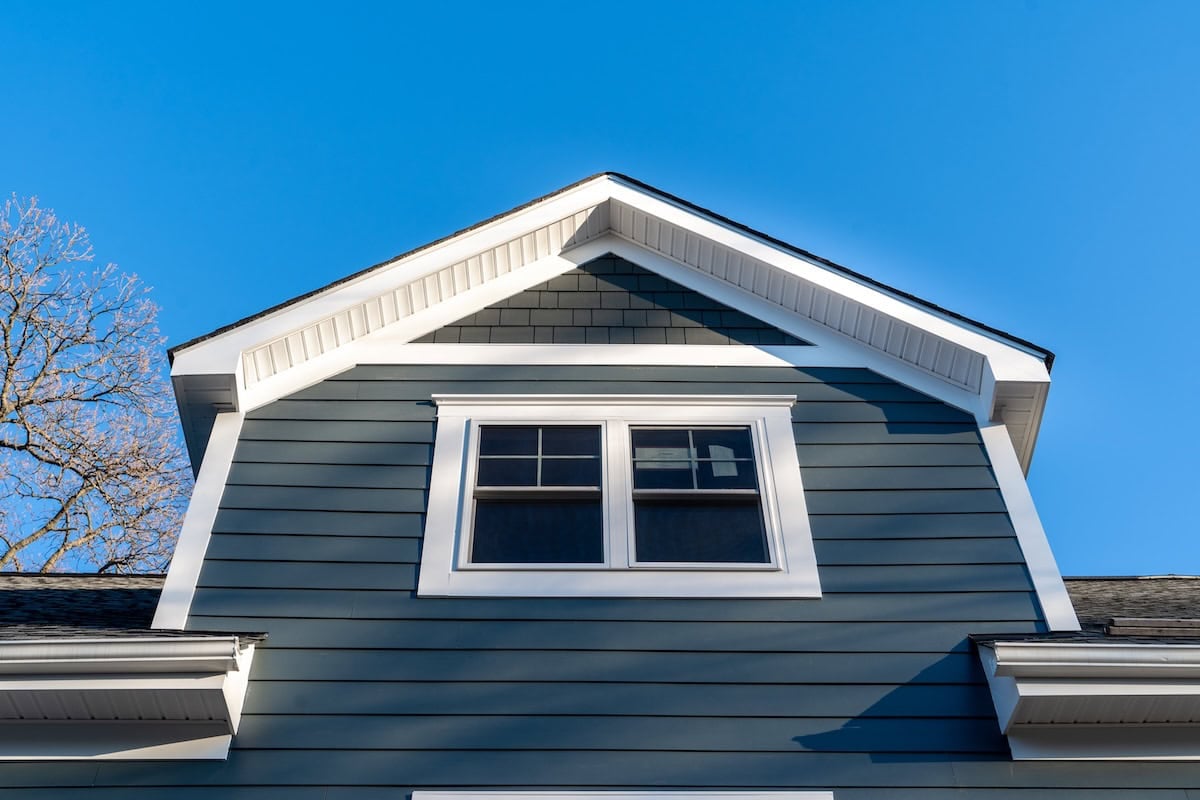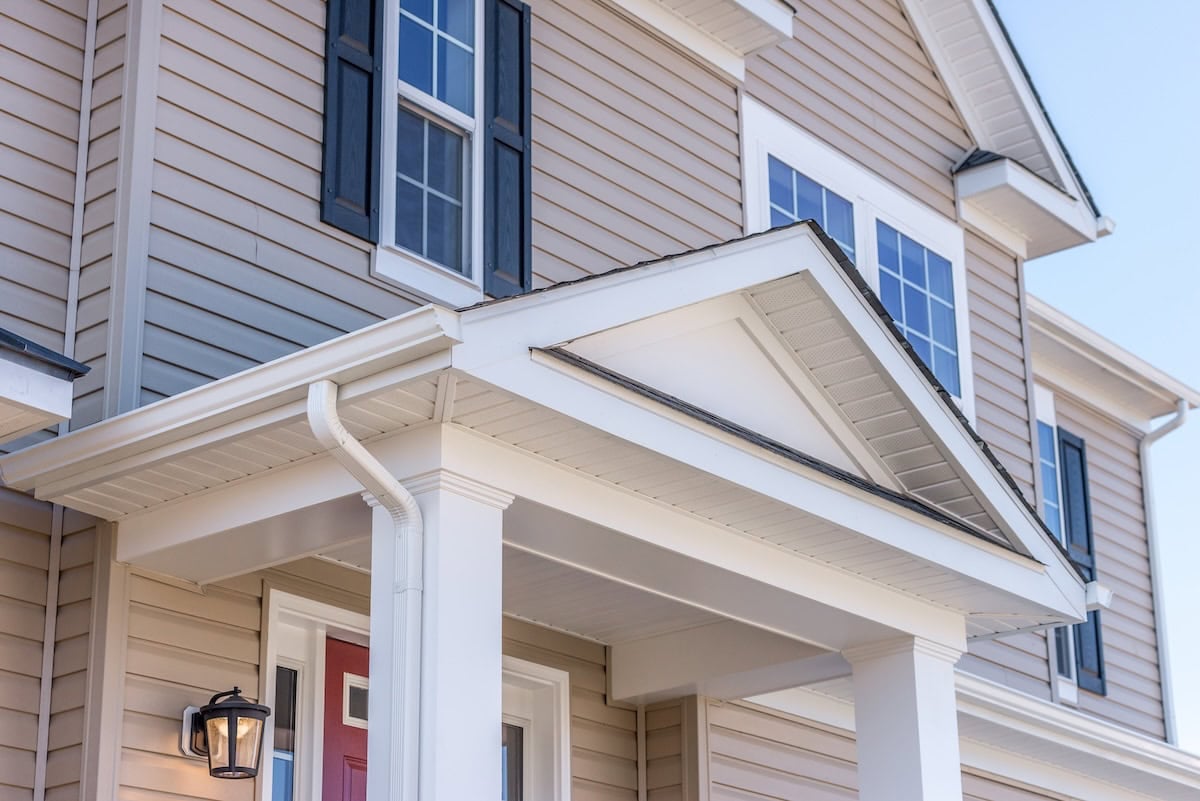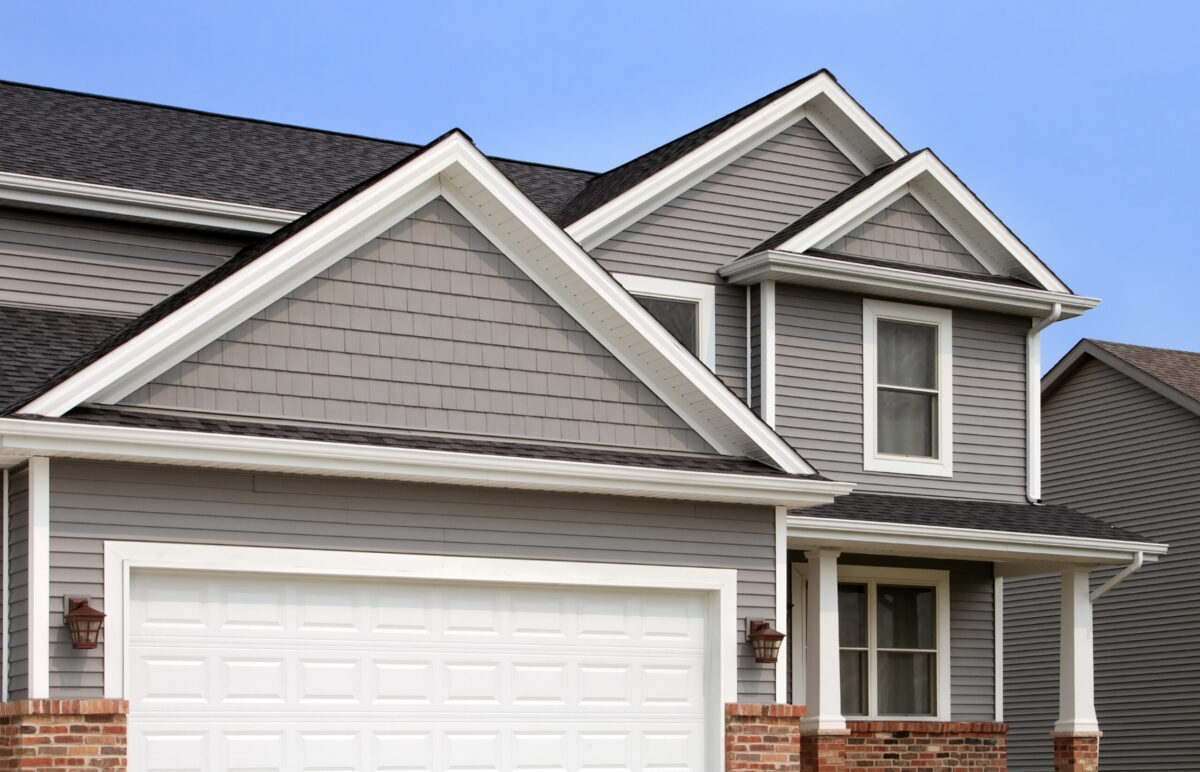Vinyl siding is one of the most popular exterior materials among homeowners in Cary, NC and surrounding areas—and for good reason. It’s affordable, attractive, and surprisingly low-maintenance. But even the most durable materials have a lifespan, and it’s natural to wonder: how long does vinyl siding last before you’ll need to repair or replace it?
Whether you’re installing new siding or assessing your home’s current condition, understanding what affects vinyl’s longevity can help you protect your investment. If you’re exploring new siding options or planning a replacement, you can learn more about professional installation here.
In this guide, you’ll learn:
- The typical lifespan of vinyl siding in North Carolina’s climate
- The top five factors that affect how long it lasts
- Maintenance habits that extend its life
- How to tell when it’s time for a replacement
- Expert advice on protecting your home’s exterior
Why Vinyl Siding Lifespan Matters

Your home’s siding is more than a cosmetic feature—it’s your first line of defense against weather, pests, and moisture. Knowing how long vinyl siding lasts helps you plan for repairs and replacements before damage spreads.
Here’s why this topic deserves attention:
- Protects Your Investment: Quality siding prevents costly structural damage by keeping out moisture and pests.
- Preserves Curb Appeal: Faded or warped siding can make even a well-maintained home look dated.
- Improves Energy Efficiency: Properly installed siding acts as an extra insulation layer, keeping your HVAC costs down.
- Boosts Home Value: Fresh, clean siding enhances resale potential, especially in competitive markets like Cary.
- Prepares You for Long-Term Costs: Knowing the average lifespan helps you budget for future upgrades.
5 Main Factors That Affect How Long Vinyl Siding Lasts
On average, quality vinyl siding lasts 30 to 40 years—sometimes even longer when maintained properly. However, not all vinyl is created equal. Several key factors influence whether your siding reaches the higher end of that range or starts showing wear early.
1. Quality of the Material
The biggest predictor of vinyl siding lifespan is the quality of the product itself.
- Thicker Panels = More Durability: Higher-grade vinyl (0.044″–0.048″) resists cracking, fading, and warping better than builder-grade versions.
- UV Protection: Premium siding contains additives that block UV rays, preventing color fading and brittleness.
- Manufacturer Warranties: Top brands offer limited lifetime warranties, which is a good indicator of confidence in product longevity.
2. Installation Quality
Even the best siding won’t last if it’s improperly installed.
- Panels must be nailed loosely enough to allow for expansion and contraction.
- Seams should overlap correctly to prevent water infiltration.
- Flashing and trim must be sealed properly around windows and doors.
Poor installation often leads to warping, buckling, and moisture problems—issues that can drastically shorten the lifespan of your siding. Always work with experienced, certified installers who understand North Carolina’s climate and local building codes.
3. Climate and Sun Exposure
Vinyl siding holds up well in various weather conditions, but Cary’s hot summers and occasional storms can take their toll.
- Heat and Humidity: High temperatures can cause cheaper vinyl to warp or sag.
- Storms and Wind: Severe weather can loosen panels or drive water behind the siding.
- Sun Exposure: UV rays are the most common cause of fading. Homes with full southern exposure may show color changes faster unless they use UV-resistant vinyl.
4. Maintenance Habits
Vinyl siding doesn’t require painting or sealing like wood, but it still needs periodic care.
- Clean It Once or Twice a Year: Use a soft brush and mild detergent to remove dirt, mildew, and algae.
- Inspect After Storms: Check for cracks, loose panels, or warped areas.
- Trim Nearby Vegetation: Overgrown trees and shrubs can scratch or puncture siding panels.
Consistent upkeep can add years to your siding’s life and preserve its curb appeal.
5. Underlayment and Insulation
Many homeowners forget that what’s underneath the siding matters just as much.
- Proper House Wrap: Prevents moisture intrusion and mold growth.
- Insulated Backing: Reduces heat transfer, protecting the vinyl from temperature extremes.
- Ventilated Design: Allows moisture to escape, preventing warping or rot in the wall structure.
If your home’s siding was installed decades ago, the underlayment might not meet today’s standards. Replacing both at once ensures a more efficient, long-lasting system.
How to Extend the Life of Vinyl Siding

Vinyl siding may be low-maintenance, but “low-maintenance” doesn’t mean “no maintenance.” Taking proactive steps will help it last longer and look newer for years to come.
Regular Cleaning and Inspection
- Frequency: Clean every 6–12 months depending on your environment.
- Method: Use a garden hose or pressure washer on a low setting (under 1300 psi).
- Products: Avoid harsh chemicals like bleach. A simple mix of vinegar and water is safe and effective.
Inspect for:
- Cracks or chips from impact damage
- Loose or missing panels
- Signs of mold, mildew, or algae growth
Manage Heat Exposure
Vinyl can warp if exposed to excessive heat.
- Avoid grilling too close to your siding.
- Position reflective surfaces like windows or metal sheds strategically to minimize concentrated heat reflection.
Repair Damage Early
Even small cracks can allow moisture behind panels, leading to bigger problems.
- Replace damaged sections promptly.
- Use color-matched caulk or sealant to close small gaps.
- Consult a professional for storm-related damage or widespread fading.
Prevent Moisture Build-Up
Moisture is one of vinyl’s biggest enemies over time.
- Make sure gutters and downspouts are clean and functional.
- Keep the ground graded away from your foundation.
- Check caulking around windows and doors annually.
Choose the Right Finish and Color
Darker colors absorb more heat and may fade faster. Lighter tones reflect sunlight and maintain their look longer—an important factor in Cary’s warm climate.
Signs It’s Time to Replace Your Vinyl Siding
Even with great care, siding won’t last forever. Knowing when to replace it can prevent hidden damage from spreading.
Noticeable Fading or Warping
Fading is natural, but if the color looks uneven or dull even after cleaning, UV degradation has likely taken hold. Warped panels indicate prolonged heat or moisture exposure.
Cracks and Holes
Small cracks might seem harmless, but they allow water to penetrate the wall system. Over time, this can lead to rot or interior leaks.
Loose or Missing Panels
If panels frequently come loose after storms, it’s often a sign the fastening system is failing or the vinyl has lost flexibility.
Mold, Mildew, or Bubbling
Discoloration, bubbling, or soft spots often mean moisture has gotten trapped behind the siding—something that requires prompt professional attention.
Increased Energy Bills
Siding that no longer seals properly can let drafts in and conditioned air out. If you’ve noticed rising energy costs, your siding could be part of the problem.
Comparing Vinyl Siding to Other Materials
If you’re wondering whether to stick with vinyl or explore alternatives, here’s a quick comparison to help you decide:
| Siding Type | Average Lifespan | Maintenance Level | Cost Range | Key Benefits |
| Vinyl | 30–40 years | Low | $$ | Affordable, easy to maintain, many styles |
| Fiber Cement | 40–50 years | Medium | $$$ | Fire-resistant, durable, realistic wood look |
| Wood | 20–30 years | High | $$$ | Classic appearance, natural material |
| Metal (Steel/Aluminum) | 40–60 years | Low–Medium | $$$ | Highly durable, modern aesthetic |
| Composite or Engineered Wood | 25–35 years | Medium | $$$ | Strong and versatile, resists rot |
Vinyl remains a strong choice for homeowners in Cary, NC who want long-lasting performance without the frequent maintenance demands of wood or fiber cement.
Professional Insight: Local Climate Considerations in Cary, NC
Cary’s climate features hot, humid summers and mild but occasionally wet winters. Those conditions can influence how long siding lasts depending on how well it’s maintained.
Here’s what local homeowners should keep in mind:
- Humidity Control: Algae and mildew thrive in damp conditions. Regular cleaning keeps growth under control.
- Storm Preparedness: Inspect your siding after severe weather for lifted panels or cracks.
- Temperature Fluctuations: Choose siding with flexibility and UV resistance to prevent brittleness from thermal expansion.
Homeowners who invest in professional installation and periodic inspections typically enjoy decades of reliable performance.
When to Call a Professional

You don’t need to wait for visible damage before calling in an expert. A siding specialist can:
- Assess the condition of your panels and underlayment
- Identify hidden moisture issues behind the siding
- Recommend targeted repairs or full replacement if needed
- Provide color and design options that complement your home’s exterior
Local professionals understand the region’s weather challenges and can help you choose materials that perform best in the Cary area.
Protecting Your Home with Expert Siding Care
Vinyl siding is one of the smartest investments a homeowner can make, offering a balance of beauty, durability, and affordability. With proper care and professional installation, it can protect your home for decades—sometimes even longer than its expected lifespan.
If your siding is showing its age, fading unevenly, or requiring more frequent cleanings, it might be time to consider an upgrade. A skilled team can assess your current system and recommend the best course of action to protect your home and boost its curb appeal.
For expert guidance or to schedule an inspection, contact us today to speak with a local siding professional serving Cary, NC and surrounding areas.